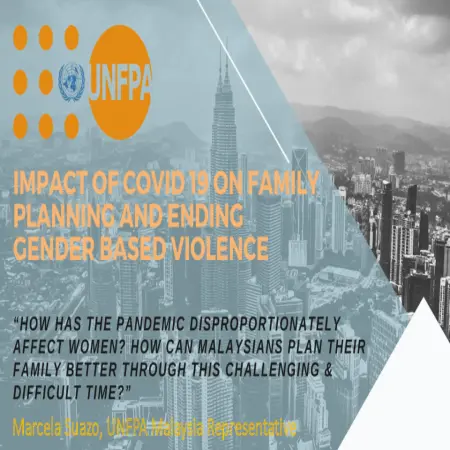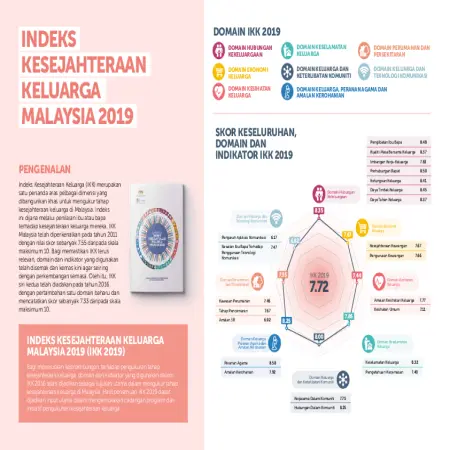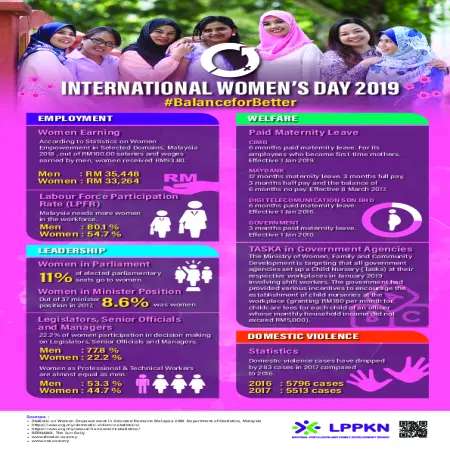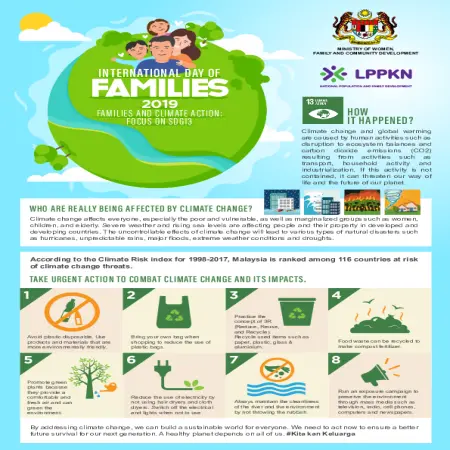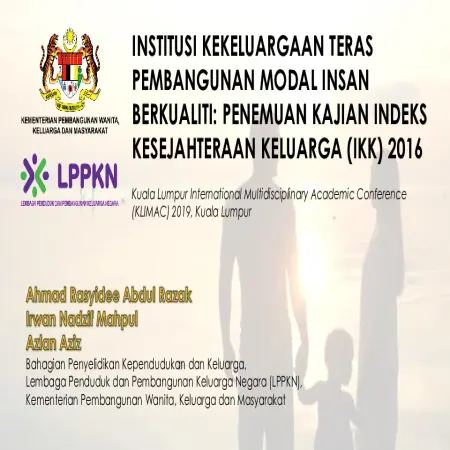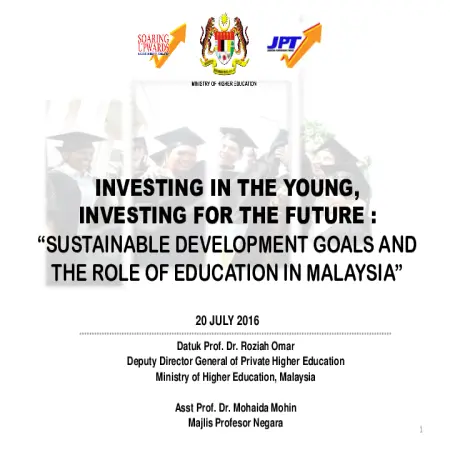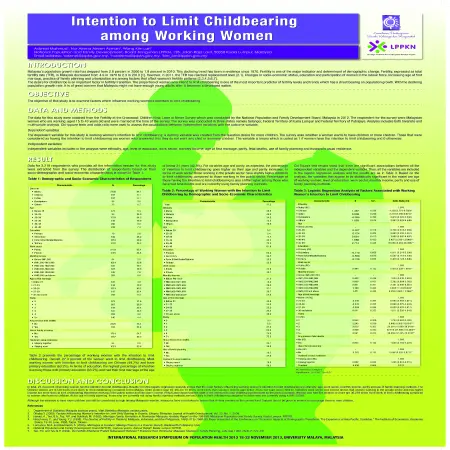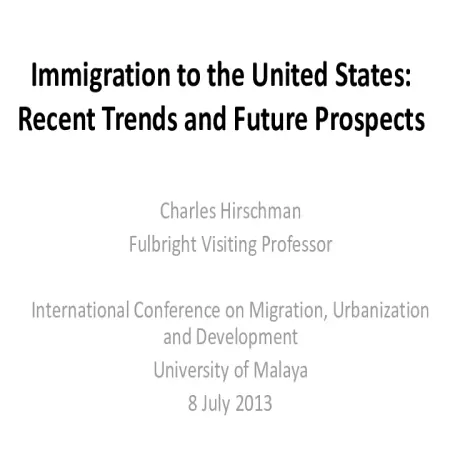Browse by Author
|
|
Impact of Covid 19 on family planning and ending gender based violence
Item Type: Conference or Workshop Item
Editor:
Year: 00/00/2020
Abstract: Women represent 70 % of the global health workforce. Hence, women are disproportionately exposed to the coronavirus. Global Supply chains are disrupted, impacting the availability of contraceptives and heightening the risk of unintended pregnancy. As countries are on lockdown and health systems struggle to cope, sexual and reproductive health services are being sidelined and gender-based violence is on the rise. The pandemic is making existing gender inequality even worse. Recent UNFPA projections highlighted the impact of a 6 month lockdown to women and girls which is 47 million women in developing countries may not be able to access modern contraceptives resulting in 7 million unintended pregnancies. This presentation slides discuss the impact of Covid-19 on family planning and ending gender based-violence.
|
|
|
|
|
|
Indeks Kesejahteraan Keluarga Malaysia 2019
Item Type: Infographic
Editor:
Year: 00/00/2020
Abstract: The Malaysian Family Well-Being Index is a multi -dimensional benchmark that specially developed to measure levels family well-being in Malaysia. Index is generated through maternal or paternal assessment to the well -being of their families. The Family Well-being Index 2019 score has increased to 7.72 from a maximum scale of 10 compared to 7.33 in 2016.
|
|
|
|
|
|
International Women's Day 2019 # BalanceforBetter
Item Type: Infographic
Editor:
Year: 00/00/2019
Abstract: This infographic shows statistics on women's involvement in Malaysia in areas such as employment, leadership, welfare as well as incentives provided by the government and the private sector in supporting women's involvement in the labor force.
|
|
|
|
|
|
International Day of Families 2019: families and climate action: focus on SDG13
Item Type: Infographic
Editor:
Year: 00/00/2019
Abstract: Climate change and global warming are caused by human activities such as discruption to ecosystem balances and carbon dioxide emissions (CO2) resulting from activities such as transport, household activity and industrialization. If this activity is not contained, it can threaten our way of life and the future of our planet.
|
|
|
|
|
|
Investing in young people: matching education with employment needs
Item Type: Conference or Workshop Item
Editor:
Year: 00/00/2016
Abstract: Education has always been the engine of growth for Malaysia. Malaysia aspiration to become a high income nation by 2020. Multi-prong strategies which include access to education for all among the pillars to transforming the nation. Malaysia has always been embracing with the strategies and action plans of the sustainable development goals regardless of class, race, gender, age and creed.
|
|
|
|
|
|
Ikat anak: siksa atau keselamatan
Item Type: Article
Editor:
Year: 10/11/2015
Abstract: The average trend in Asia, especially in Malaysia, parents prefer to hold or support the baby on the grounds that it is easier to monitor, breastfeed and put them to sleep. Many parents seem to assume that sitting on their lap is enough to protect their baby from accidents and upset to see a toddler lying tied up in a car seat. Based on statistics, the use of child safety seats and travel systems is not taken seriously by most parents in Malaysia. According to a study conducted by MIROS, babies will be thrown forward at high speeds even if held by an adult during a vehicle collision even with only 30km per hour. Most will be killed as a direct result of the impact.
|
|
|
|
|
|
Imbangi keluarga dan kerjaya
Item Type: Article
Editor:
Year: 00/05/2015
Abstract: Based on the Fourth Malaysian Population and Family Survey (MPFS-4), it was found that overall, mothers do more leisure activities with their children, especially children under seven years old. This study found that the percentage of parents who often spend special time with their children is higher among mothers (80.2%) than fathers (65.3%). However, the percentage of those who frequently took their children on outings was almost the same between mothers (52.2%) and fathers (52.4%).
|
|
|
|
|
|
Intention to limit childbearing among working women
Item Type: Scientific Poster
Editor:
Year: 00/11/2013
Abstract: Malaysia's population growth the rate has dropped from 2.6 percent in 2000 to 1.9 percent in 2010. This declining trends has been in evidence since 1970. Fertility is one of the major indicator and determinant of demographic change. Fertility, expressed as total fertility rate (TFR), in Malaysia decreased from 4.9 in 1970 to 2.3 in 2010. However, in 2011, the TFR has reached replacement level (2.1). Changes in socio-economic status, education and participation of women in the labour force, increasing age at first marriage, practice of family planning and urbanization are among factors that affect women's fertility pattern.
|
|
|
|
|
|
Immigration to the United States: recent trends and future prospects
Item Type: Conference or Workshop Item
Editor:
Year: 00/00/2013
Abstract: The United States is popularly known as a “nation of immigrants.” For recent immigrants and their descendants, this term means that they belong part of a long tradition of peoples who came the United States seeking economic opportunity, fleeing injustice or oppression in their homeland, and a better life for their children. Long term residents of the United States, those who immigration experience is several generations in the past, often have mixed feelings about new immigrants. They may be very proud of their immigrant forbearers from Italy, Poland, or Ireland, but this historical experience does not always generate sympathy for recent arrivals. They often think the new immigrants are somehow different and less deserving than those who arrived in the past. These beliefs about new immigrants are based on assumptions of difference--the recent newcomers have a different religion, a different language, or are from a different country that will make them less likely to assimilate to American society and culture. Then, there is a significant proportion of Americans are strongly hostile to new immigrants – they would like to stop all immigration and even to expel those who are already here, including the estimated 12 million immigrants who do not have any legal standing to be in the US. This ambivalence about immigration, and even hostility to immigrants, is part of the fabric of American society, past and present. Immigrants from around the world have been coming to the United States in large numbers for almost 4 centuries, long before the founding of the nation in 1787. Although immigrants are often welcomed, particularly by family and friends from their homeland, they often encounter indifference and occasional prejudice from long resident Americans. In this overview, I survey the trends in immigration to the United States with a focus on the most recent period. Current levels of immigration are very high, but relative the national population. In fact, the portion of the US population that is foreign born (or the children of the foreign born) was even higher during the first decade of the 20th century and during the 1840s and 1850s. These earlier waves of mass migration generated an extreme levels of American nativism that were much hostile than those at present. There was a significant number of Chinese, Japanese and Filipino immigrants in the late 19th and early 20th century, but the majority originated in Europe. At present, about half of new immigrants come from Mexico and other Latin American countries, and about one-quarter come from Asia, including China, India, Vietnam, and the Philippines. In the 1970s and 1980s, most immigrants settled a few states, particularly California, New York, Texas, Florida, and Illinois. In the 1990s, immigrants spread out to “new destinations,” including small towns and cities in the South and Midwest. They are not the poorest of the poor. Some immigrants arrive with very high educational credentials and play a disproportionate role in the American high tech sector. In general, the children of immigrants do very well in American society, both educationally and economically. Immigrants and their children are also distinctive in terms of their determination to succeed. Of course, not all immigrants are successful. Some join gangs and experience downward mobility. They may even adopt attitudes that reject the goal of social mobility. But, all in all, most empirical research shows that contemporary immigrants are making a positive contribution to American society, just as earlier waves of immigrants did.
|
|
|
|





